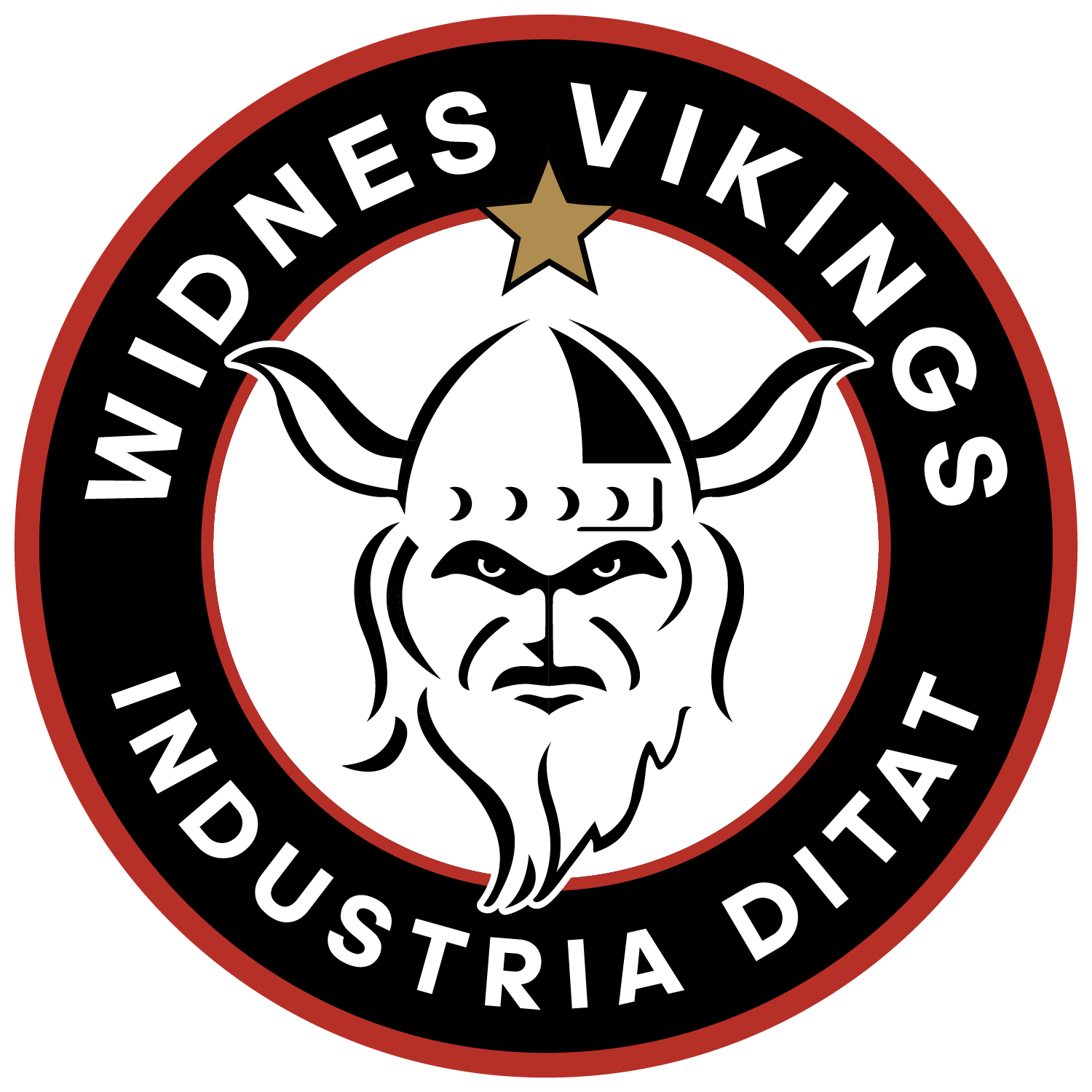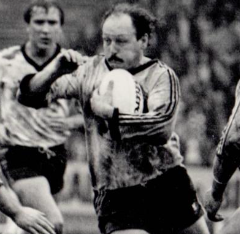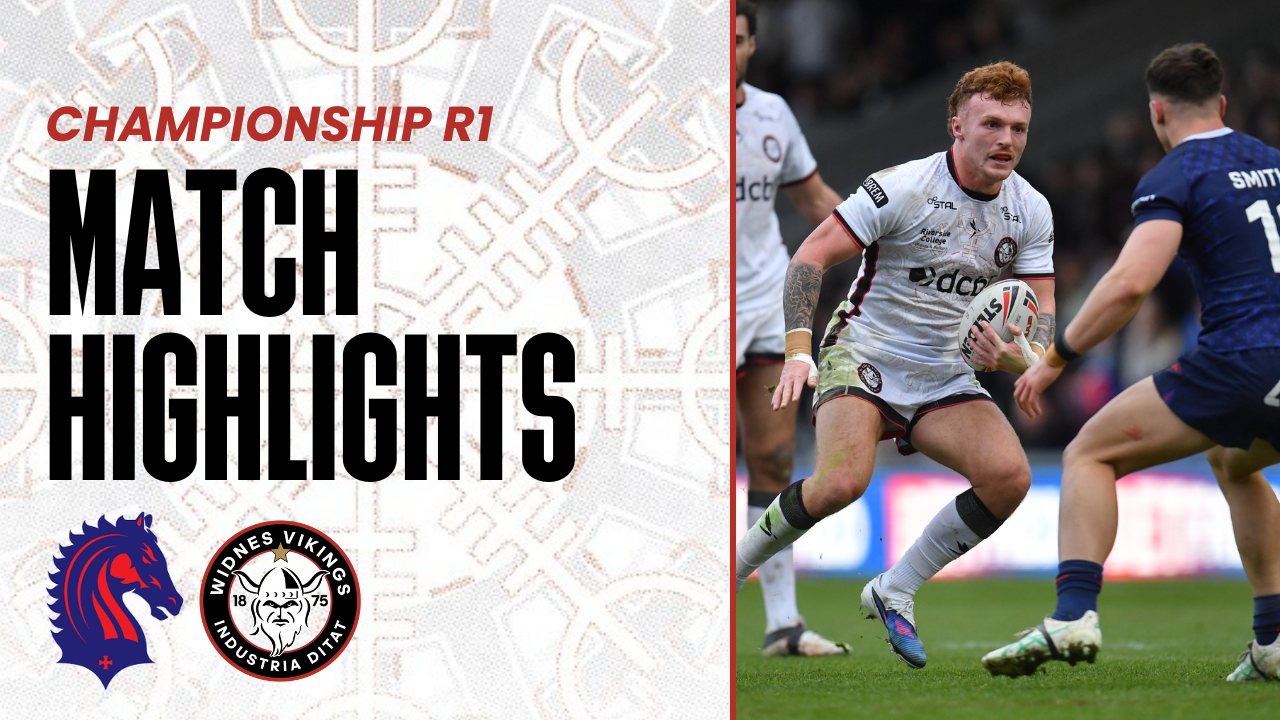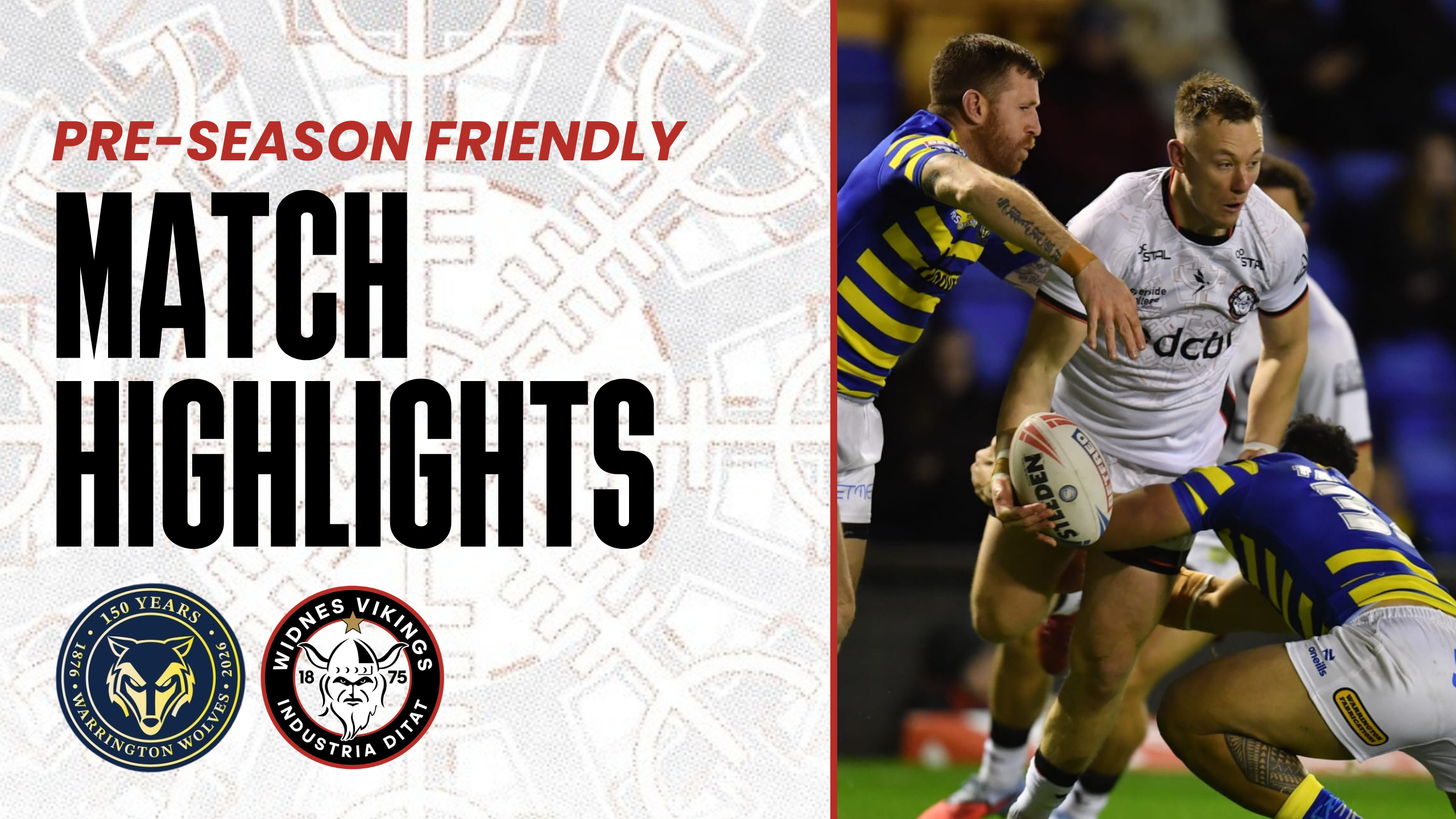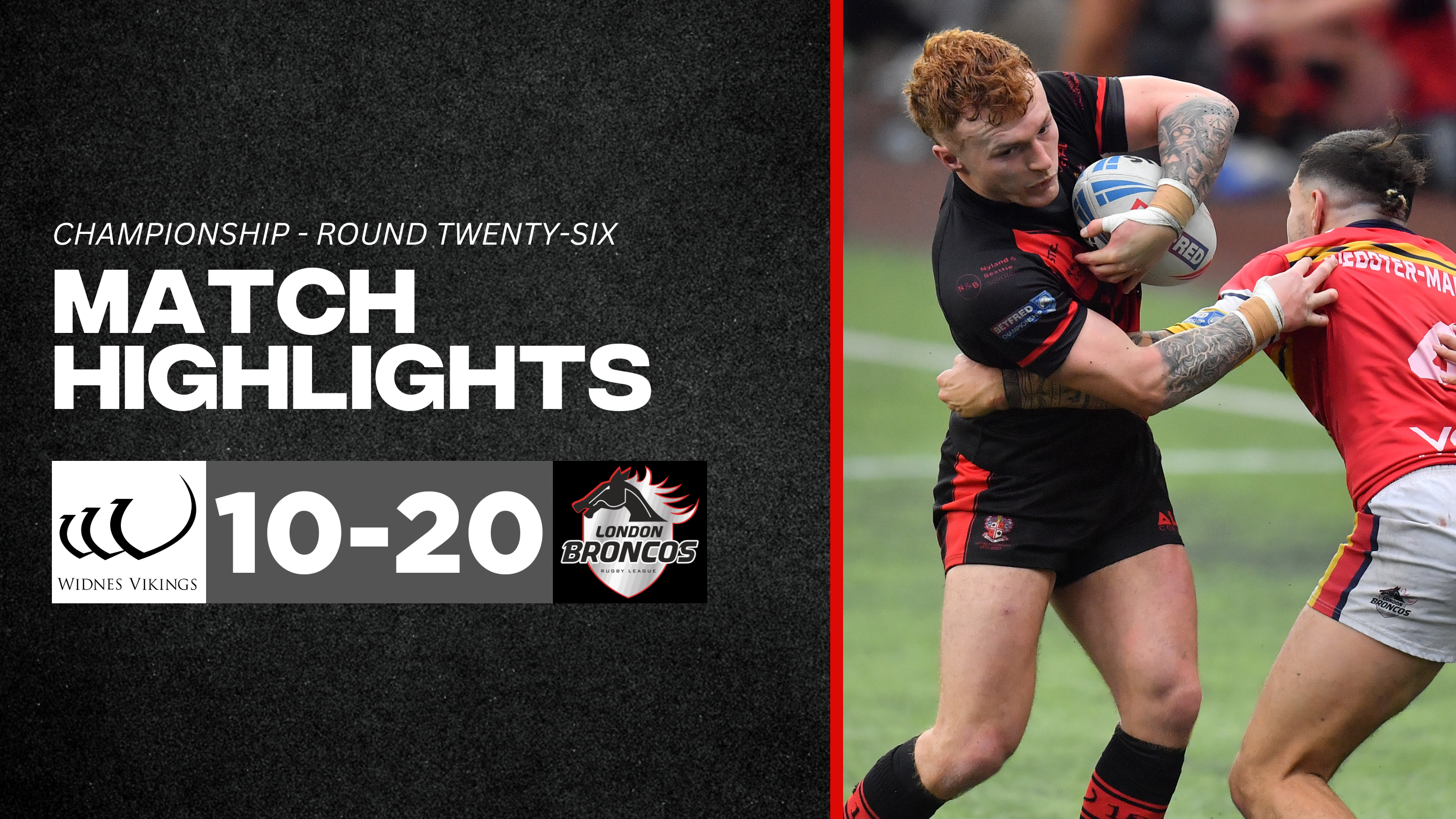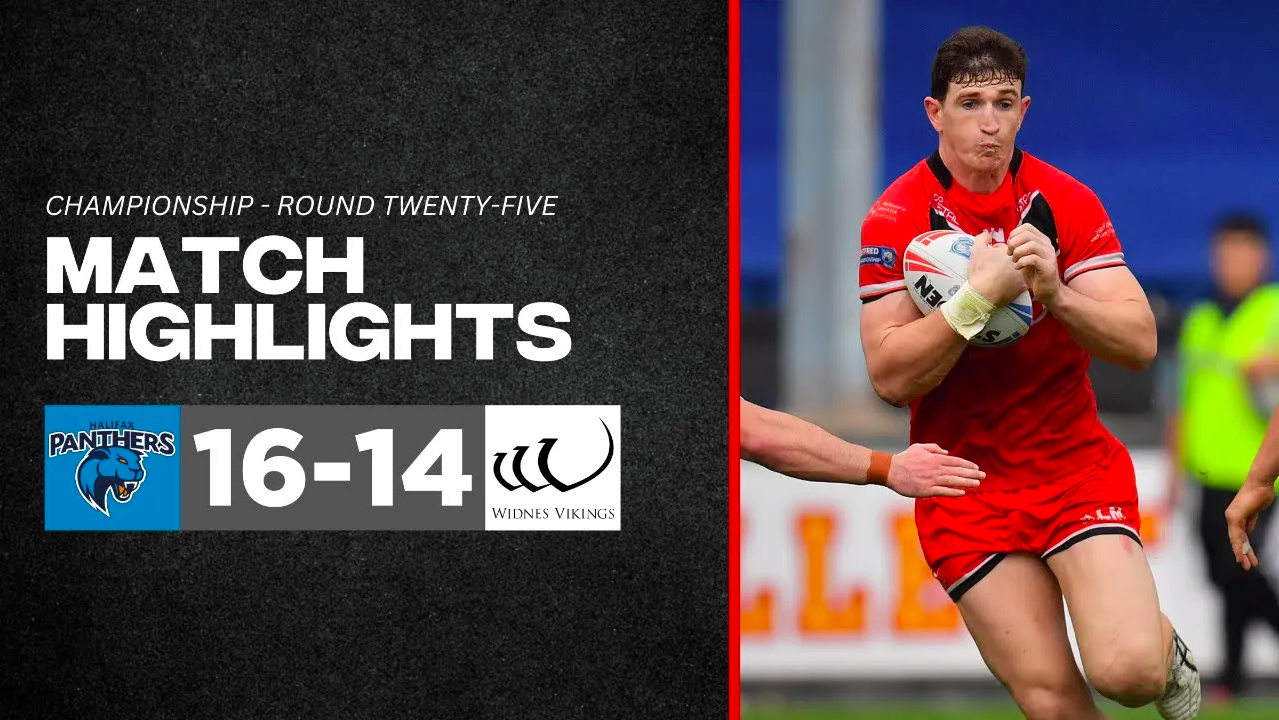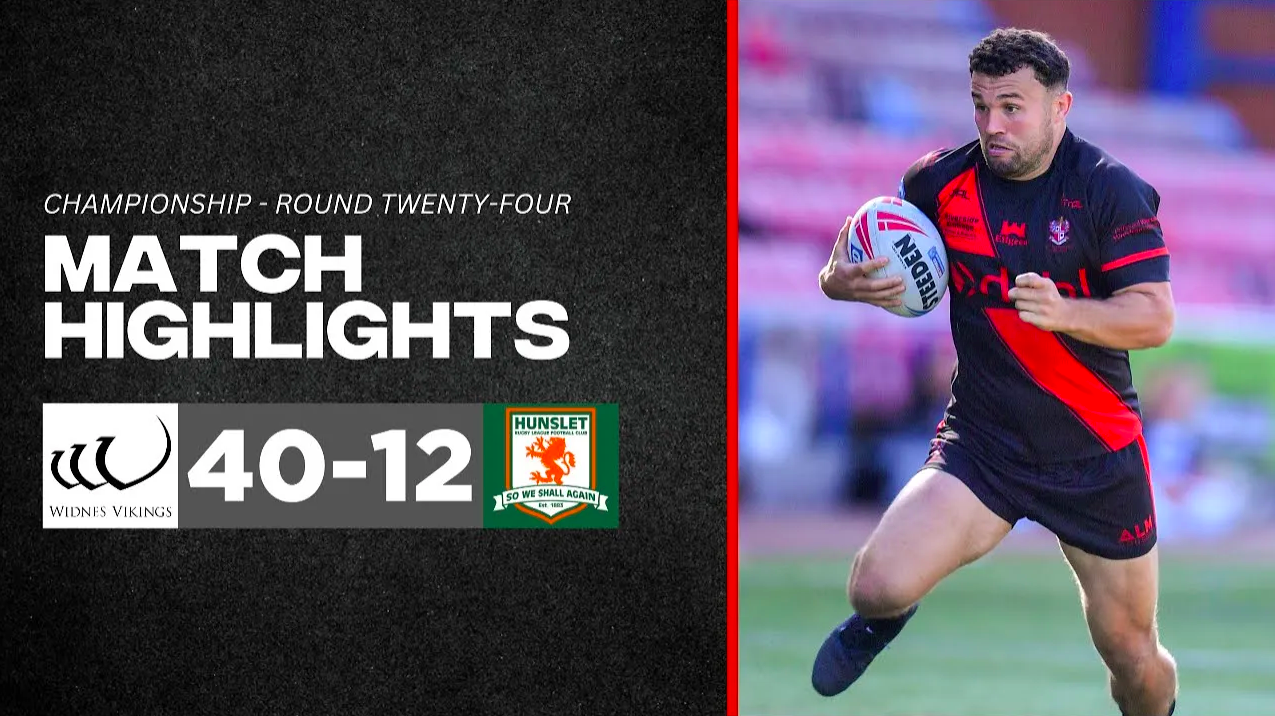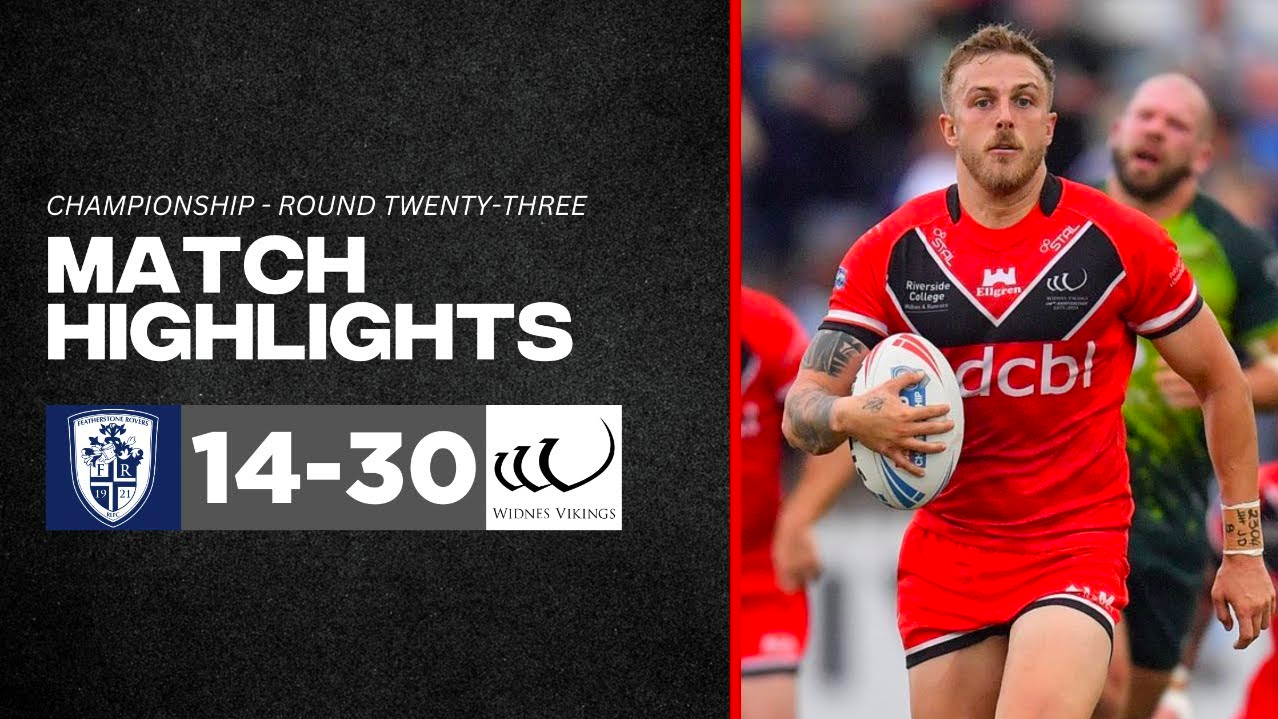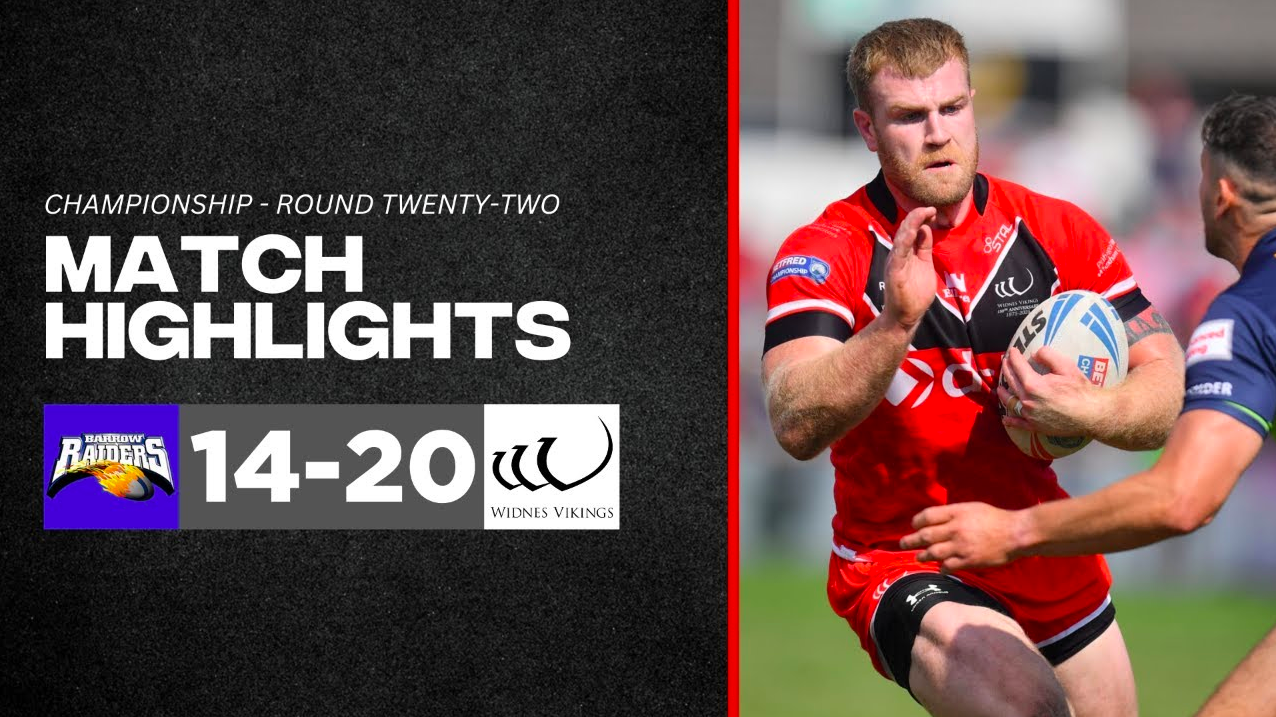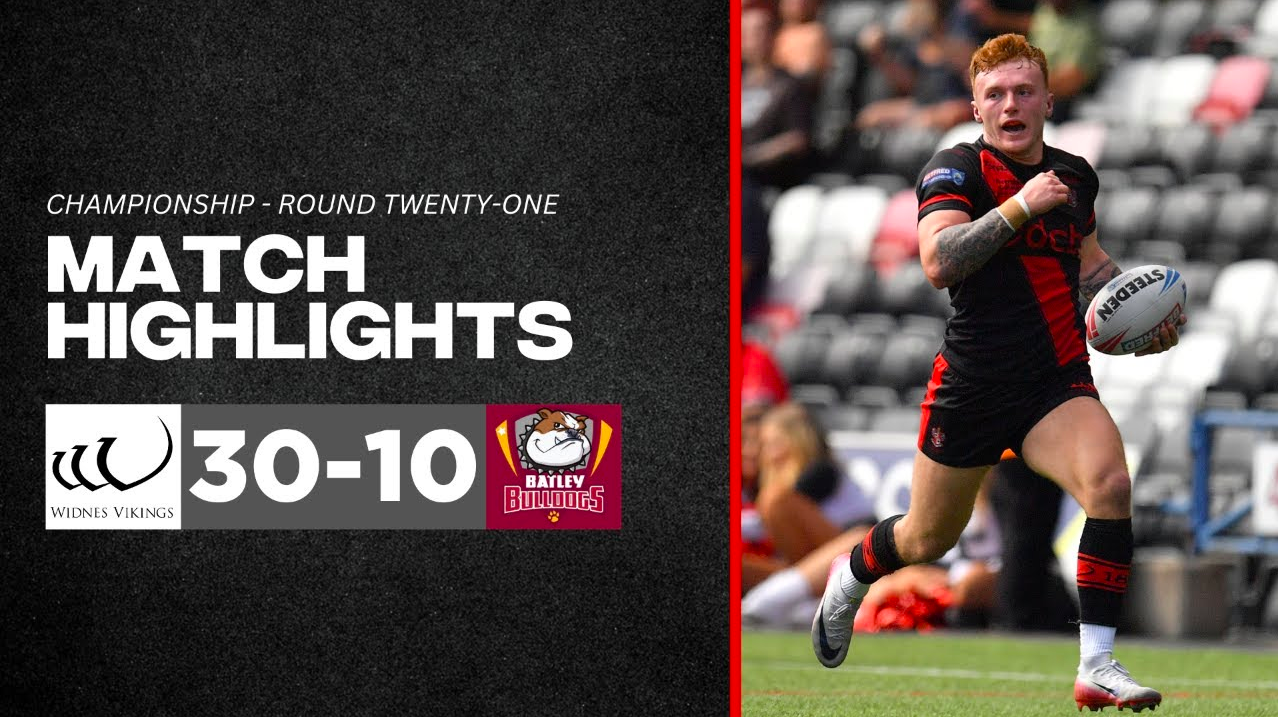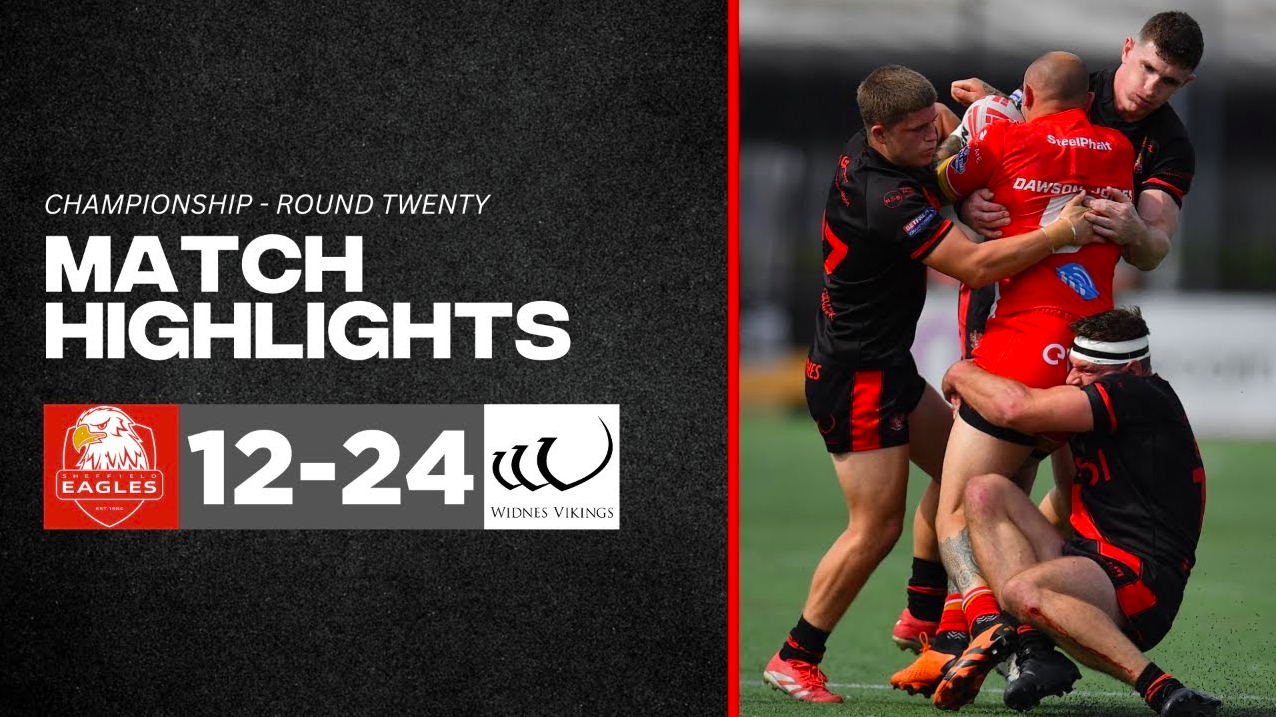Widnes Vikings are saddened to learn of the death of rugby league legend Brian Lockwood, who had a highly successful spell with the club in the early 1980s. Our thoughts are with Brian’s family and friends at this difficult time.
A TRIBUTE
Brian was aged 34 when he arrived at Naughton Park in January 1981, with the black and whites struggling for consistency following the retirement of Jim Mills and the departure of many experienced players to Fulham the previous summer.
At the time it was unusual for the Chemics to recruit a Yorkshireman, so coach Doug Laughton gave his new signing permission to do his training close to home.
But such was Brian’s enthusiasm for the task that he regularly made the journey across the Pennines to training twice a week and his dedication paid off as Widnes made a rapid return to form. He made only 53 first team appearances in total for the club in what was the twilight of an outstanding career, but those games included two Wembley finals, a Challenge Cup final replay, a Premiership final win and a Lancashire Cup final.
Brian’s finest moment as a Chemic was arguably the 1981 Wembley final against Hull KR. Having played there for the Robins twelve months earlier, he knew their moves inside out and made sure he was always in a position to snuff out their attacking threats.
Brian Lockwood had begun his career at local club Castleford in 1962 backed with an impressive RL pedigree. He was related to the famous rugby league-playing Sherwood family that included his grandfather, Herbert “Clon” Sherwood (a Yorkshire county forward) and an uncle (also Herbert) who was a Wembley winner with Huddersfield in the 1930s. Fellow Great Britain stars Roger Millward and Les Dyl were Brian’s first cousins.
As tough as any grafter in the pack and with a range of passes to unlock the tightest of defences, Brian was originally a second-row or loose-forward who occasionally partnered Roger Millward at halfback in Castleford’s ‘A’ team.
He went on to become a winner at Wembley in the cup finals of 1969 and 1970, with international honours not far behind, including a key role in Britain’s 1972 World Cup win.
Alongside Doug Laughton, he headed to Canterbury Bankstown rather than tour with the 1974 Lions. Their early form together in Sydney was patchy and the savage Aussie press labelled them “Lacklustre Laughton” and “Deadwood Lockwood”.
Doug flew home early but Brian stayed and inspired his young colleagues to the Grand Final, with the newspapers now describing him as being as tough as teak and as polished as mahogany. “I think we would have won if Doug had still been there,” he later recalled.
The following season he returned down under, this time with Balmain, who paid Castleford an undisclosed amount for his registration, though Brian subsequently suggested that Cas had received a then-world-record transfer fee. He was at Balmain until 1977, a stint which overlapped with his time as player-coach of Wakefield Trinity, 1976-78.
When he left Belle Vue, Brian was already approaching 32 but he still had some of his best moments ahead of him. At Hull KR – by now playing at prop – he won league and cup honours and was awarded the Lance Todd Trophy in 1980. He had also been adjudged man of the match as Great Britain beat Australia at Odsal in 1978.
Having left Hull KR, Brian had a brief, unhappy, spell at Oldham before his glorious encore with the Chemics. His success at Wembley in 1981 matched Alex Murphy’s feat of winners’ medals with three different clubs and, in all, he played six times at the national stadium without defeat (including a 1973 test match against the Kangaroos).
Following his playing retirement he coached Huddersfield, Batley and junior clubs in Australia, as well as continuing a successful career in the licensed trade, an occupation that he had followed since 1977.
Brian Lockwood, 8 October 1946 – 10 October 2024. RIP.
